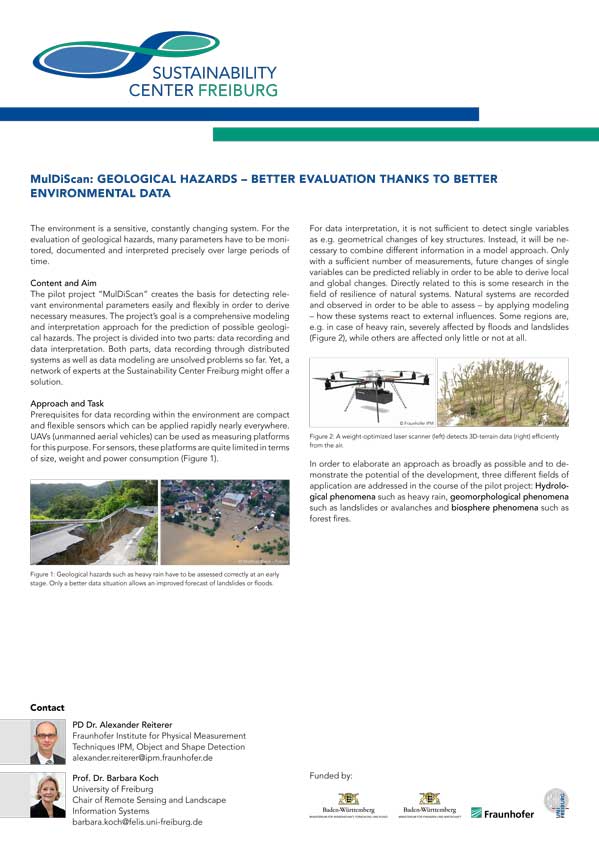Multidimensional recording of environmental data for the assessment of geo-risks and as a basis for the sustainable use of complex living spaces
Our environment is a complex and sensitive system. Using natural resources economically and sustainably is therefore also a complex task in which maintaining the sensitive balance and sustainability has to be ensured. The precise observation, documentation and interpretation of relevant parameters and of their change are indispensable.
In the envisaged project, the foundation shall be laid to capture as many parameters as possible without great effort in a very flexible manner and to draw relevant conclusions from the interpretation of these parameters. On the one hand, this requires a compact and flexible sensor system. In order to transport this to the measuring location quickly and flexibly, small flying platforms (UAVs) are available, which largely dictate the size, weight and power consumption of the sensor system.
On the other hand, the necessary interpretation by means of a multidimensional approach results from the partly unknown dependence on very different variables and their influence on the overall system. In order to gain relevant insights and to draw conclusions, it is not enough to record individual variables such as the geometrical changes of important structures or the change in growth.
The information has to be modeled accordingly. The aim is to reliably predict future changes in individual variables from a sufficiently large number of measured values and to derive local but also "large scale" or global changes. Both the detection of the relevant variables by distributed systems as well as the modeling itself present largely unsolved problems.
Within the framework of »MulDiScan«, the key topic »Resilience Engineering« as defined in the Sustainability Center Freiburg is addressed by advancing technological new developments concerning sensors in order to model the resilience of natural systems in various uses against various risks. With this, we intend to achieve a better risk assessment in order to improve measures for the prevention or mitigation of hazards.
In addition, catastrophe management in the event of natural catastrophes can be extensively supported with the envisaged technology development.
Through the integration of natural and engineering sciences, approaches and systems are being developed that support the development of subject-specific models for sustainable risk management.
Links to our partners

